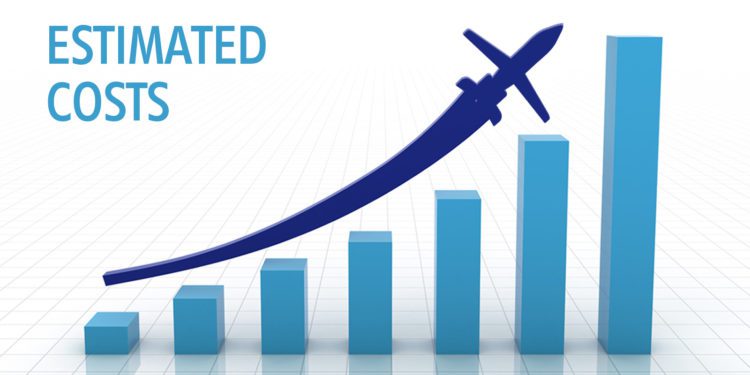Estimating Costs of Your Bizav Trip – Part 2: Additional Considerations

This business aviation blog post continues from our article last week, titled “Estimating Costs of your BizAv Trip – Part 1: Cost Considerations.“
In part one of these article series, we covered the basic components of a trip cost estimate. Trip cost estimates range from basic navigation, airport, and handling fee estimates to complete estimates of all costs likely to be incurred on a particular trip – including fuel uplifts, credit arrangements, and 4th-party services. In order to obtain the most accurate estimate it’s important to provide as much information as possible regarding aircraft, passenger and crew counts, exact schedule, type of flight, and all services required. In this article, we’ll cover additional factors including changes, fuel, taxes, and other fees.
The following is an overview of what you need to know:
1. Costs involved in changing trip schedules
A small change to a trip has the potential to impact the cost greatly. For example, if you’re planning to fly from Narita (RJAA) to Beijing (ZBAA) and decide to change to Guangzhou (ZGGG) you may save thousands of dollars in airport and handling fees, but there may be cancellation fees to consider as well as additional navigation and permit fees. Be mindful that if a permit is denied, after a trip starts, this will change your routing and alter the original trip estimate as new route and permits may be required.
2. Sourcing trip cost information
The best way to obtain a trip cost estimate is by way of your 3rd-party provider, and there are usually no fees associated with this service. Keep in mind that not all airports publish all of their local charges. These charges may be published in the Aeronautical Information Publication (AIP) for that country or on the airport’s website. Some airports are upfront in terms of their charges while others are not. Often, it takes quite a bit of research and leg work to determine airport, ground handling, in-flight catering, local transport, and other associated trip costs in advance of day of operation.
3. Fuel cost estimates
Fuel uplift costs are usually the highest cost component of a trip. Be aware that fuel prices may change on a weekly or monthly basis, and there may be different taxes to consider, based on your type of flight and whether you’re operating internationally or domestic. Costs vary depending upon the fuel provider and, often, which side of the airport you’re doing the uplift. Most fuel cost estimates include all applicable taxes – such as value added tax (VAT) and mineral oil tax (MOT). At many locations charter operators may be entitled to VAT and MOT tax breaks. Certain fuel related charges – such as into-plane fees, overtime charges, and truck fees – may not be included in fuel estimates as the operator’s schedule may not be firm or some data may not be available. Be mindful that dramatic fuel uplift savings are possible by strategic tankering of fuel or by planning fuel uplifts at lower cost locations. Fuel uplifts in Germany, for example, may cost two to three times more than similar uplifts at Shannon (EINN).
4. Credit considerations
How you pay for fuel uplifts, handling, and airport fees will impact trip costs. Using aviation fuel cards and/or fuel releases often translates to lower fuel uplift costs. In some (rare) situations you may need to pay for fuel and services in cash, and this could mean carrying cash on your trip. If credit is extended by a ground handler there may be a service fee, ranging up to about 15%, for any credit extended.
5. Trip cancelation fees
Certain fees associated with a planned international trip may not be refundable, or may be only partially refundable, if the trip cancels. Permit fees are generally non-refundable, whereas navigation and airport landing fees are typically not charged if a trip cancels. Handling fees may or may not be refundable depending upon how early the service request is cancelled. Likewise, in-flight catering requests may not be refundable unless cancelled at least 72 hours in advance.
Conclusion
Understand that an estimate is just an estimate and prices will vary depending upon services ordered after the fact. Even the smallest changes to a proposed schedule can have a large impact on cost. And, if all information is not provided in advance a trip estimate may be greatly flawed. Additionally, if a trip cost estimate is obtained too far out prices may change and the initial estimate may be off.
Questions?
If you have any questions about this article or would like an estimate for your next trip, contact me at fredquinonez@univ-wea.com.




